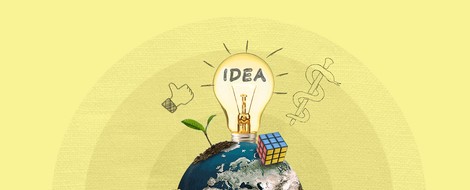Your podcast discovery platform
Curious minds select the most fascinating podcasts from around the world. Discover hand-piqd audio recommendations on your favorite topics.

piqer for: Global finds Doing Good
Michaela Haas, PhD, is the award-winning author of four non-fiction books, most recently Bouncing Forward: The Art and Science of Cultivating Resilience (Simon&Schuster). She is a member of the Solutions Journalism Network and writes a weekly solutions column for the German Süddeutsche Zeitung Magazin. Her articles have been published on CBS, the Washington Post, the Huffington Post, Daily Beast, and many other reputable media.
Care BnB: The Amazing Town Where Locals Take In Mentally Ill People
How do we care for mentally ill members of our society? One in four people will experience mental health problems in their lives, according to the World Health Organisation. It is a topic I am keenly interested in, since I took in a mentally ill homeless woman for three months last year. It was an extremely challenging, but also a very rewarding experience.
The residents of the small Belgian town of Geel near Antwerp have created a model that leaves me in awe: Hundreds, at times even thousands of families, have taken in mentally ill strangers. They call it “radical kindness”, and maybe one of the most surprising aspects of this unusual “Care BnB” is not only that the strangers often stay for years or even decades, but also that this “innovative” model, as researchers are now calling it, has already worked for 700 years, and that only two families ever opted out.
Maybe we have forgotten that caring for strangers in need was once an idea deeply rooted in our society? Scientists have recently analyzed the model to find out why it works so well and what other towns and communities could learn from this example of social care.
This well-written Guardian piece details the story of a family who took in a “stranger” who is no longer a stranger: Jefkae Harbant arrived as a shy 18-year-old with a learning disability in the second World War and has stayed with the family for nearly 76 years. He has thus achieved what was the hope all along: to live a life as “normal” as possible, with a loving family rather than in a psychiatric institution.
